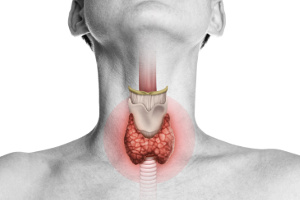afterLoad (456.3KB) (5.75ms)
afterInitialise (1.27MB) (102ms)
afterRoute (827.66KB) (23.82ms)
beforeRenderComponent com_content (35.2KB) (5.51ms)
Before Access::preloadComponents (all components) (67.27KB) (565μs)
After Access::preloadComponents (all components) (98.07KB) (10.83ms)
Before Access::preloadPermissions (com_content) (1.6KB) (24μs)
After Access::preloadPermissions (com_content) (3.29MB) (26.14ms)
Before Access::getAssetRules (id:62 name:com_content.category.20) (130.65KB) (6.71ms)
After Access::getAssetRules (id:62 name:com_content.category.20) (7.38KB) (72μs)
Before Access::getAssetRules (id:8 name:com_content) (51.77KB) (77.61ms)
After Access::getAssetRules (id:8 name:com_content) (6.17KB) (41μs)
afterRenderComponent com_content (1.47MB) (321ms)
afterDispatch (32.39KB) (18.19ms)
beforeRenderRawModule mod_articles_category (READ MORE...) (398.66KB) (35.19ms)
afterRenderRawModule mod_articles_category (READ MORE...) (59KB) (184ms)
beforeRenderRawModule mod_custom (BOOST YOUR IMMUNE DEFENSE) (6.45KB) (40μs)
afterRenderRawModule mod_custom (BOOST YOUR IMMUNE DEFENSE) (4.42KB) (257μs)
beforeRenderRawModule mod_articles_latest (Latest news) (976B) (15μs)
afterRenderRawModule mod_articles_latest (Latest news) (35.27KB) (198ms)
beforeRenderRawModule mod_tags_popular (Search) (2.09KB) (34μs)
afterRenderRawModule mod_tags_popular (Search) (22.42KB) (138ms)
beforeRenderRawModule mod_custom (the Vitamin and Mineral Guide) (960B) (40μs)
afterRenderRawModule mod_custom (the Vitamin and Mineral Guide) (1.02KB) (57μs)
beforeRenderRawModule mod_custom (Weight loss that works) (736B) (1.99ms)
afterRenderRawModule mod_custom (Weight loss that works) (928B) (95μs)
beforeRenderRawModule mod_custom (Get additionel and more detailed knowledge ) (752B) (14μs)
afterRenderRawModule mod_custom (Get additionel and more detailed knowledge ) (944B) (27μs)
beforeRenderRawModule mod_custom (Q10 goes by many names) (736B) (906μs)
afterRenderRawModule mod_custom (Q10 goes by many names) (928B) (42μs)
beforeRenderRawModule mod_custom (Check this before you buy a Q10 product) (752B) (12μs)
afterRenderRawModule mod_custom (Check this before you buy a Q10 product) (944B) (23μs)
beforeRenderRawModule mod_custom (Are you taking supplements) (736B) (10μs)
afterRenderRawModule mod_custom (Are you taking supplements) (2.28KB) (21μs)
beforeRenderRawModule mod_custom (Antiaging) (720B) (9μs)
afterRenderRawModule mod_custom (Antiaging) (912B) (18μs)
beforeRenderRawModule mod_custom (Exercise) (720B) (9μs)
afterRenderRawModule mod_custom (Exercise) (912B) (17μs)
beforeRenderRawModule mod_custom (Useful Links) (720B) (9μs)
afterRenderRawModule mod_custom (Useful Links) (1.02KB) (18μs)
beforeRenderModule mod_articles_category (READ MORE...) (268.2KB) (9ms)
afterRenderModule mod_articles_category (READ MORE...) (1.25KB) (104μs)
beforeRenderModule mod_custom (BOOST YOUR IMMUNE DEFENSE) (6.81KB) (15μs)
afterRenderModule mod_custom (BOOST YOUR IMMUNE DEFENSE) (1.28KB) (27μs)
beforeRenderModule mod_articles_latest (Latest news) (592B) (11μs)
afterRenderModule mod_articles_latest (Latest news) (1.27KB) (23μs)
beforeRenderModule mod_tags_popular (Search) (1.73KB) (12μs)
afterRenderModule mod_tags_popular (Search) (1.27KB) (26μs)
beforeRenderModule mod_custom (the Vitamin and Mineral Guide) (1.31KB) (13μs)
afterRenderModule mod_custom (the Vitamin and Mineral Guide) (1.28KB) (27μs)
beforeRenderModule mod_custom (Weight loss that works) (336B) (12μs)
afterRenderModule mod_custom (Weight loss that works) (1.27KB) (21μs)
beforeRenderModule mod_custom (Get additionel and more detailed knowledge ) (368B) (9μs)
afterRenderModule mod_custom (Get additionel and more detailed knowledge ) (1.3KB) (20μs)
beforeRenderModule mod_custom (Q10 goes by many names) (336B) (8μs)
afterRenderModule mod_custom (Q10 goes by many names) (1.27KB) (20μs)
beforeRenderModule mod_custom (Check this before you buy a Q10 product) (352B) (8μs)
afterRenderModule mod_custom (Check this before you buy a Q10 product) (1.28KB) (21μs)
beforeRenderModule mod_custom (Are you taking supplements) (352B) (9μs)
afterRenderModule mod_custom (Are you taking supplements) (1.28KB) (19μs)
beforeRenderModule mod_custom (Antiaging) (336B) (9μs)
afterRenderModule mod_custom (Antiaging) (1.27KB) (19μs)
beforeRenderModule mod_custom (Exercise) (336B) (9μs)
afterRenderModule mod_custom (Exercise) (1.25KB) (19μs)
beforeRenderModule mod_custom (Useful Links) (336B) (9μs)
afterRenderModule mod_custom (Useful Links) (3.77KB) (20μs)
beforeRenderRawModule mod_menu (Main Menu - English) (37.51KB) (2.03ms)
afterRenderRawModule mod_menu (Main Menu - English) (195.66KB) (2.48ms)
beforeRenderModule mod_menu (Main Menu - English) (720B) (7μs)
afterRenderModule mod_menu (Main Menu - English) (4.86KB) (76μs)
beforeRenderRawModule mod_languages (Sprogskift) (3.94KB) (20μs)
afterRenderRawModule mod_languages (Sprogskift) (21.8KB) (2.06ms)
beforeRenderModule mod_languages (Sprogskift) (720B) (8μs)
afterRenderModule mod_languages (Sprogskift) (5.31KB) (25μs)
beforeRenderRawModule mod_finder () (6.34KB) (15μs)
afterRenderRawModule mod_finder () (128.59KB) (2.11ms)
beforeRenderModule mod_finder () (704B) (6μs)
afterRenderModule mod_finder () (3.29KB) (43μs)
beforeRenderRawModule mod_custom () (6.62KB) (164μs)
afterRenderRawModule mod_custom () (30.89KB) (1.21ms)
beforeRenderModule mod_custom () (704B) (9μs)
afterRenderModule mod_custom () (1.23KB) (88μs)
beforeRenderRawModule mod_menu (Main Menu - English) (5.07KB) (136μs)
afterRenderRawModule mod_menu (Main Menu - English) (6.3KB) (801μs)
beforeRenderModule mod_menu (Main Menu - English) (720B) (4μs)
afterRenderModule mod_menu (Main Menu - English) (1.25KB) (115μs)
beforeRenderRawModule mod_languages (Sprogskift Mobil) (912B) (20μs)
afterRenderRawModule mod_languages (Sprogskift Mobil) (3.89KB) (805μs)
beforeRenderModule mod_languages (Sprogskift Mobil) (720B) (4μs)
afterRenderModule mod_languages (Sprogskift Mobil) (1.27KB) (35μs)
beforeRenderRawModule mod_finder () (2.3KB) (10μs)
afterRenderRawModule mod_finder () (6.29KB) (758μs)
beforeRenderModule mod_finder () (704B) (6μs)
afterRenderModule mod_finder () (1.23KB) (60μs)
beforeRenderRawModule mod_custom () (8.66KB) (223μs)
afterRenderRawModule mod_custom () (904B) (174μs)
beforeRenderModule mod_custom () (704B) (3μs)
afterRenderModule mod_custom () (2.43KB) (29μs)
beforeRenderRawModule mod_custom () (688B) (83μs)
afterRenderRawModule mod_custom () (896B) (97μs)
beforeRenderModule mod_custom () (704B) (2μs)
afterRenderModule mod_custom () (2.71KB) (23μs)
afterRender (296.41KB) (8.48ms)
| 1 x afterRenderComponent com_content (1.47MB) (26.84%) | 320.59ms |
| 1 x afterRenderRawModule mod_articles_latest (Latest news) (35.27KB) (16.55%) | 197.70ms |
| 1 x afterRenderRawModule mod_articles_category (READ MORE...) (59KB) (15.43%) | 184.27ms |
| 1 x afterRenderRawModule mod_tags_popular (Search) (22.42KB) (11.58%) | 138.29ms |
| 1 x afterInitialise (1.27MB) (8.5%) | 101.56ms |
| 1 x Before Access::getAssetRules (id:8 name:com_content) (51.77KB) (6.5%) | 77.61ms |
| 1 x beforeRenderRawModule mod_articles_category (READ MORE...) (398.66KB) (2.95%) | 35.19ms |
| 1 x After Access::preloadPermissions (com_content) (3.29MB) (2.19%) | 26.14ms |
| 1 x afterRoute (827.66KB) (1.99%) | 23.82ms |
| 1 x afterDispatch (32.39KB) (1.52%) | 18.19ms |
| 1 x After Access::preloadComponents (all components) (98.07KB) (0.91%) | 10.83ms |
| 1 x beforeRenderModule mod_articles_category (READ MORE...) (268.2KB) (0.75%) | 9.00ms |
| 1 x afterRender (296.41KB) (0.71%) | 8.48ms |
| 1 x Before Access::getAssetRules (id:62 name:com_content.category.20) (130.65KB) (0.56%) | 6.71ms |
| 1 x afterLoad (456.3KB) (0.48%) | 5.75ms |
| 1 x beforeRenderComponent com_content (35.2KB) (0.46%) | 5.51ms |
| 1 x afterRenderRawModule mod_menu (Main Menu - English) (195.66KB) (0.21%) | 2.48ms |
| 1 x afterRenderRawModule mod_finder () (128.59KB) (0.18%) | 2.11ms |
| 1 x afterRenderRawModule mod_languages (Sprogskift) (21.8KB) (0.17%) | 2.06ms |
| 1 x beforeRenderRawModule mod_menu (Main Menu - English) (37.51KB) (0.17%) | 2.03ms |
| 1 x beforeRenderRawModule mod_custom (Weight loss that works) (736B) (0.17%) | 1.99ms |
| 1 x afterRenderRawModule mod_custom () (30.89KB) (0.1%) | 1.21ms |
| 1 x beforeRenderRawModule mod_custom (Q10 goes by many names) (736B) (0.08%) | 906μs |
| 1 x afterRenderRawModule mod_languages (Sprogskift Mobil) (3.89KB) (0.07%) | 805μs |
| 1 x afterRenderRawModule mod_menu (Main Menu - English) (6.3KB) (0.07%) | 801μs |
| 1 x afterRenderRawModule mod_finder () (6.29KB) (0.06%) | 758μs |
| 1 x Before Access::preloadComponents (all components) (67.27KB) (0.05%) | 565μs |
| 1 x afterRenderRawModule mod_custom (BOOST YOUR IMMUNE DEFENSE) (4.42KB) (0.02%) | 257μs |
| 1 x beforeRenderRawModule mod_custom () (8.66KB) (0.02%) | 223μs |
| 1 x afterRenderRawModule mod_custom () (904B) (0.01%) | 174μs |
| 1 x beforeRenderRawModule mod_custom () (6.62KB) (0.01%) | 164μs |
| 1 x beforeRenderRawModule mod_menu (Main Menu - English) (5.07KB) (0.01%) | 136μs |
| 1 x afterRenderModule mod_menu (Main Menu - English) (1.25KB) (0.01%) | 115μs |
| 1 x afterRenderModule mod_articles_category (READ MORE...) (1.25KB) (0.01%) | 104μs |
| 1 x afterRenderRawModule mod_custom () (896B) (0.01%) | 97μs |
| 1 x afterRenderRawModule mod_custom (Weight loss that works) (928B) (0.01%) | 95μs |
| 1 x afterRenderModule mod_custom () (1.23KB) (0.01%) | 88μs |
| 1 x beforeRenderRawModule mod_custom () (688B) (0.01%) | 83μs |
| 1 x afterRenderModule mod_menu (Main Menu - English) (4.86KB) (0.01%) | 76μs |
| 1 x After Access::getAssetRules (id:62 name:com_content.category.20) (7.38KB) (0.01%) | 72μs |
| 1 x afterRenderModule mod_finder () (1.23KB) (0.01%) | 60μs |
| 1 x afterRenderRawModule mod_custom (the Vitamin and Mineral Guide) (1.02KB) (0%) | 57μs |
| 1 x afterRenderModule mod_finder () (3.29KB) (0%) | 43μs |
| 1 x afterRenderRawModule mod_custom (Q10 goes by many names) (928B) (0%) | 42μs |
| 1 x After Access::getAssetRules (id:8 name:com_content) (6.17KB) (0%) | 41μs |
| 1 x beforeRenderRawModule mod_custom (BOOST YOUR IMMUNE DEFENSE) (6.45KB) (0%) | 40μs |
| 1 x beforeRenderRawModule mod_custom (the Vitamin and Mineral Guide) (960B) (0%) | 40μs |
| 1 x afterRenderModule mod_languages (Sprogskift Mobil) (1.27KB) (0%) | 35μs |
| 1 x beforeRenderRawModule mod_tags_popular (Search) (2.09KB) (0%) | 34μs |
| 1 x afterRenderModule mod_custom () (2.43KB) (0%) | 29μs |
| 1 x afterRenderModule mod_custom (BOOST YOUR IMMUNE DEFENSE) (1.28KB) (0%) | 27μs |
| 1 x afterRenderRawModule mod_custom (Get additionel and more detailed knowledge ) (944B) (0%) | 27μs |
| 1 x afterRenderModule mod_custom (the Vitamin and Mineral Guide) (1.28KB) (0%) | 27μs |
| 1 x afterRenderModule mod_tags_popular (Search) (1.27KB) (0%) | 26μs |
| 1 x afterRenderModule mod_languages (Sprogskift) (5.31KB) (0%) | 25μs |
| 1 x Before Access::preloadPermissions (com_content) (1.6KB) (0%) | 24μs |
| 1 x afterRenderRawModule mod_custom (Check this before you buy a Q10 product) (944B) (0%) | 23μs |
| 1 x afterRenderModule mod_articles_latest (Latest news) (1.27KB) (0%) | 23μs |
| 1 x afterRenderModule mod_custom () (2.71KB) (0%) | 23μs |
| 1 x afterRenderModule mod_custom (Check this before you buy a Q10 product) (1.28KB) (0%) | 21μs |
| 1 x afterRenderRawModule mod_custom (Are you taking supplements) (2.28KB) (0%) | 21μs |
| 1 x afterRenderModule mod_custom (Weight loss that works) (1.27KB) (0%) | 21μs |
| 1 x afterRenderModule mod_custom (Q10 goes by many names) (1.27KB) (0%) | 20μs |
| 1 x beforeRenderRawModule mod_languages (Sprogskift Mobil) (912B) (0%) | 20μs |
| 1 x afterRenderModule mod_custom (Get additionel and more detailed knowledge ) (1.3KB) (0%) | 20μs |
| 1 x afterRenderModule mod_custom (Useful Links) (3.77KB) (0%) | 20μs |
| 1 x beforeRenderRawModule mod_languages (Sprogskift) (3.94KB) (0%) | 20μs |
| 1 x afterRenderModule mod_custom (Are you taking supplements) (1.28KB) (0%) | 19μs |
| 1 x afterRenderModule mod_custom (Exercise) (1.25KB) (0%) | 19μs |
| 1 x afterRenderModule mod_custom (Antiaging) (1.27KB) (0%) | 19μs |
| 1 x afterRenderRawModule mod_custom (Antiaging) (912B) (0%) | 18μs |
| 1 x afterRenderRawModule mod_custom (Useful Links) (1.02KB) (0%) | 18μs |
| 1 x afterRenderRawModule mod_custom (Exercise) (912B) (0%) | 17μs |
| 1 x beforeRenderModule mod_custom (BOOST YOUR IMMUNE DEFENSE) (6.81KB) (0%) | 15μs |
| 1 x beforeRenderRawModule mod_finder () (6.34KB) (0%) | 15μs |
| 1 x beforeRenderRawModule mod_articles_latest (Latest news) (976B) (0%) | 15μs |
| 3 x beforeRenderModule mod_custom () (704B) (0%) | 14μs |
| 1 x beforeRenderRawModule mod_custom (Get additionel and more detailed knowledge ) (752B) (0%) | 14μs |
| 1 x beforeRenderModule mod_custom (the Vitamin and Mineral Guide) (1.31KB) (0%) | 13μs |
| 1 x beforeRenderModule mod_tags_popular (Search) (1.73KB) (0%) | 12μs |
| 1 x beforeRenderModule mod_custom (Weight loss that works) (336B) (0%) | 12μs |
| 1 x beforeRenderRawModule mod_custom (Check this before you buy a Q10 product) (752B) (0%) | 12μs |
| 2 x beforeRenderModule mod_finder () (704B) (0%) | 12μs |
| 2 x beforeRenderModule mod_menu (Main Menu - English) (720B) (0%) | 11μs |
| 1 x beforeRenderModule mod_articles_latest (Latest news) (592B) (0%) | 11μs |
| 1 x beforeRenderRawModule mod_custom (Are you taking supplements) (736B) (0%) | 10μs |
| 1 x beforeRenderRawModule mod_finder () (2.3KB) (0%) | 10μs |
| 1 x beforeRenderRawModule mod_custom (Antiaging) (720B) (0%) | 9μs |
| 1 x beforeRenderModule mod_custom (Get additionel and more detailed knowledge ) (368B) (0%) | 9μs |
| 1 x beforeRenderModule mod_custom (Antiaging) (336B) (0%) | 9μs |
| 1 x beforeRenderModule mod_custom (Exercise) (336B) (0%) | 9μs |
| 1 x beforeRenderModule mod_custom (Useful Links) (336B) (0%) | 9μs |
| 1 x beforeRenderRawModule mod_custom (Exercise) (720B) (0%) | 9μs |
| 1 x beforeRenderRawModule mod_custom (Useful Links) (720B) (0%) | 9μs |
| 1 x beforeRenderModule mod_custom (Are you taking supplements) (352B) (0%) | 9μs |
| 1 x beforeRenderModule mod_custom (Q10 goes by many names) (336B) (0%) | 8μs |
| 1 x beforeRenderModule mod_languages (Sprogskift) (720B) (0%) | 8μs |
| 1 x beforeRenderModule mod_custom (Check this before you buy a Q10 product) (352B) (0%) | 8μs |
| 1 x beforeRenderModule mod_languages (Sprogskift Mobil) (720B) (0%) | 4μs |
 Cholesterol-lowering statins are associated with side effects such as aching muscles, fatigue, memory problems, diabetes, and poor sleep. At a molecular level, these drugs interfere with the body’s synthesis of Q10, which we need for cellular energy turnover. Moreover, Q10 is a powerful antioxidant that protects the cells against free radical damage. According to a review article published in the journal Cureus, Q10 supplements may lower side effects such as muscle pain.
Cholesterol-lowering statins are associated with side effects such as aching muscles, fatigue, memory problems, diabetes, and poor sleep. At a molecular level, these drugs interfere with the body’s synthesis of Q10, which we need for cellular energy turnover. Moreover, Q10 is a powerful antioxidant that protects the cells against free radical damage. According to a review article published in the journal Cureus, Q10 supplements may lower side effects such as muscle pain.













 Most studies of
Most studies of 



 Multiple studies have shown that
Multiple studies have shown that